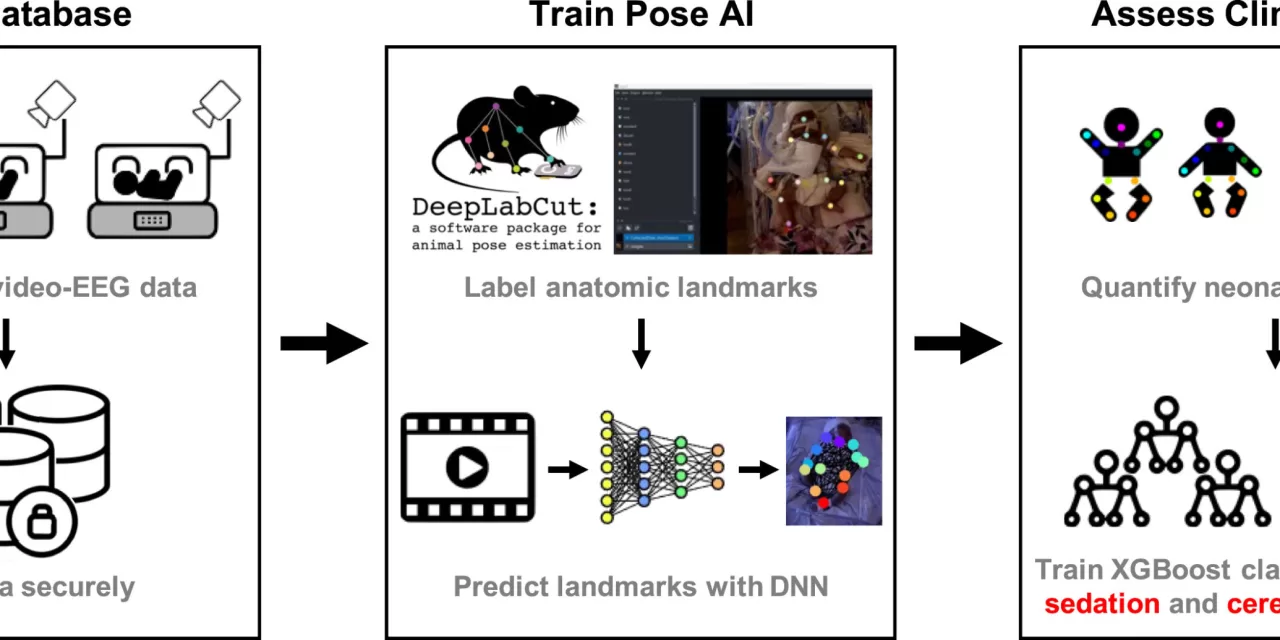November 13, 2024 – New York, NY — A breakthrough artificial intelligence (AI) tool developed by a team of clinicians, scientists, and engineers at Mount Sinai offers a new way to monitor neurologic health in neonatal intensive care unit (NICU) infants by analyzing video footage. This innovation, detailed in a study published on November 11 in eClinicalMedicine, could transform neurologic monitoring in NICUs, providing critical, real-time insights into infant brain health.
Each year, over 300,000 newborns in the U.S. are admitted to NICUs, where monitoring heart and lung function is routine. However, similar continuous monitoring for neurologic function has remained out of reach, relying instead on sporadic and sometimes imprecise physical exams. Mount Sinai’s Pose AI leverages pose-recognition algorithms to assess infant movements, enabling continuous, minimally invasive neurologic assessments.
The Mount Sinai team trained their AI on nearly 17 million seconds of video footage from 115 infants undergoing EEG monitoring at The Mount Sinai Hospital. By tracking infants’ movements and identifying anatomic landmarks in real time, the AI could detect signs of sedation and cerebral dysfunction with high accuracy.
“Although many NICUs already have video cameras, this is the first time AI has been applied to monitor neurologic health continuously,” said Dr. Felix Richter, senior author and Instructor of Newborn Medicine at Mount Sinai. “Pose AI provides early alerts on neurologic changes, potentially enabling faster interventions and improved outcomes.”
Pose AI proved effective even under challenging conditions, such as different lighting and angles, and showed correlations with both gestational and postnatal age. The team emphasizes that the tool complements—not replaces—physician and nurse assessments, providing an additional layer of monitoring to support bedside care.
In the future, Pose AI could operate similarly to cardiorespiratory telemetry, continuously scanning for neurologic changes and alerting clinicians as necessary. “We envision a neuro-telemetry strip, similar to heart rate monitoring, that provides continuous feedback on an infant’s neurologic status,” Dr. Richter explained.
The study’s authors plan further testing across multiple hospitals and patient populations. “At Mount Sinai, we’re committed to exploring how AI can improve patient care, including for our most vulnerable infants,” said Dr. Girish Nadkarni, study co-author and Director of the Mount Sinai Clinical Intelligence Center. The health system’s current AI initiatives have already enhanced diagnostics and reduced hospital readmissions, and now this new tool may help safeguard infants in the NICU.
For further details, refer to Alec Gleason et al’s study in eClinicalMedicine.












